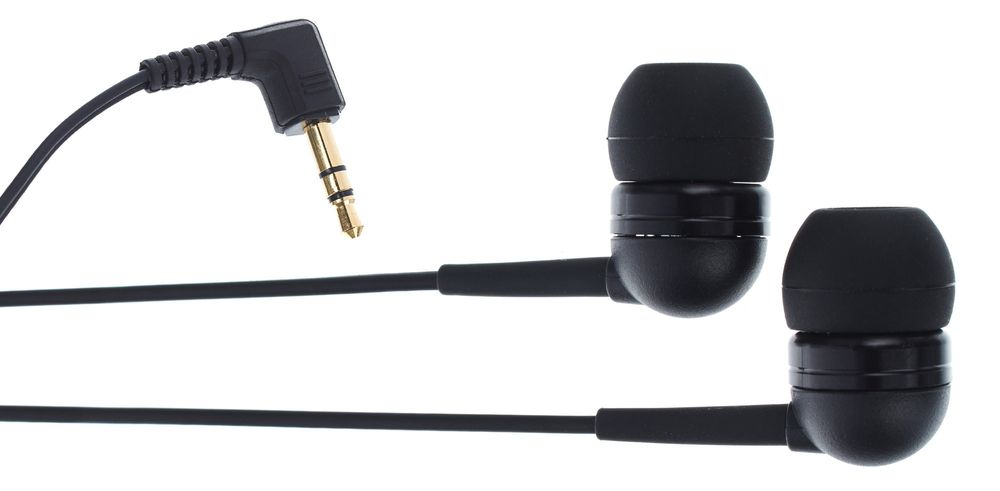4. Off-The-Shelf Systems: One-Way
We're starting with the typical universally usable single-driver hearing systems, which are available from various manufacturers and are often included with in-ear systems. They dominate the market by a large margin.

Universal single-driver in-ear system
These systems are designed to fit almost any ear by using various interchangeable foam pads or silicone tips. Typically, these hearing systems use a standard driver from the hearing aid industry. Some newer products also use a driver similar to those found in Walkman headphones. The sound is very present and treble-heavy with less bass. These hearing systems are popular among rental companies, amateur, and semi-professional musicians as a plug-and-play solution. This is also because these earphones mostly fall into a relatively moderate price range (150 - 250EUR).
The slightly thinner sound is not necessarily a disadvantage. For clean intonation and ensemble playing, the low frequencies are not as crucial, except for bassists and drummers.
Pros:
(ordered by importance)
- Universally usable for different artists
- Moderate price, making them suitable when many artists need to be provided for
- Relatively good external noise reduction through the use of earpieces
- Cosmetic aspect: The cosmetic aspect is generally good with these earphones. If absolute invisibility is required, earphone systems with a smaller form factor should be used, such as Voicetronic VT-01, Shure E1. These can be almost invisible, even with relatively small ears.
Cons:
- The slightly thin sound initially puts off many artists. The only solution is to set up an appropriate EQ with pre-listening to create a sound profile suitable for the artist. A certain period of getting used to it is very important for the artist.
- Depending on the shape of the hearing system and the anatomy of the ear, these earphones may fit poorly in the ears and slip out. When this happens, the sound quality and external noise reduction change drastically, which is quite uncomfortable. The only solution is to experiment with different earpieces to achieve optimal results. It's very important that the cables are routed over the auricles and gathered at the back of the neck to prevent any tension on the earphones.



